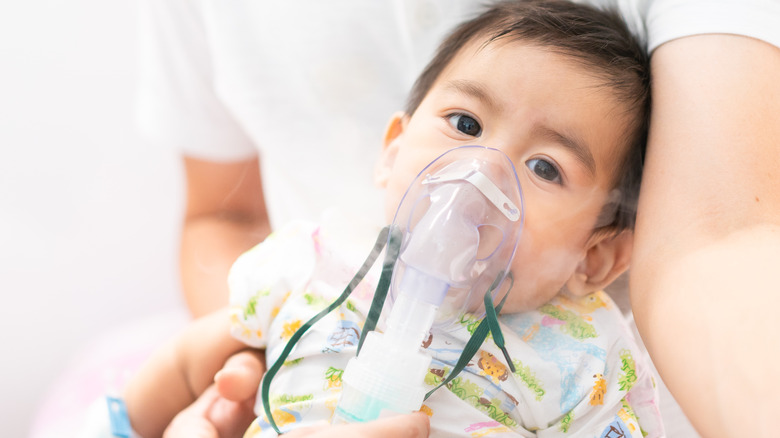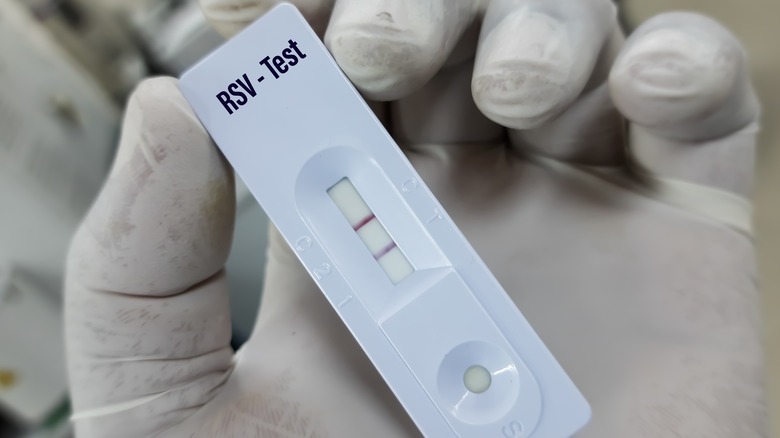How Long Is RSV Contagious For?
The Centers for Disease Control and Prevention (CDC) explains that respiratory syncytial virus (RSV) is similar to the common cold in its presentation and symptoms and is not normally categorized as a serious disease, except in young children and the elderly. If you've been contaminated with RSV, you'll likely experience a number of upper respiratory symptoms, including a runny nose, sneezing, coughing, and a fever. The good news is that these symptoms typically resolve without treatment within a matter of days to a couple of weeks.
In some cases, the CDC points out that RSV can lead to further respiratory complications that do require medical attention. Namely, the virus can cause an infection of the airways leading to the lungs, known as bronchiolitis. An infection of the lungs themselves, in the form of pneumonia, can also occur. You will also want to seek immediate medical care if you have trouble breathing or experience dehydration as this may warrant a short hospital stay for oxygen support or intubation.
New York State Department of Health explains that RSV is spread through bodily secretions, namely from the throat and mouth of those who are already infected. These droplets leave the body through sneezing and coughing, allowing the virus to enter the air or land on surfaces in the surrounding area. It spreads to other people when inhaled or touched and brought to the mouth and nose. Once infected, an individual remains contagious for a certain period of time.
RSV's contagious period depends on the individual
Once a person contracts RSV, they will become symptomatic within a week, as per UC Health. They will then remain contagious — meaning they can spread the virus to other people — for around three to eight days in most cases. However, in certain individuals, such as young children or those with a comprised immune system, RSV can spread to others for as long as they remain symptomatic — this means the virus could be contagious for up to a month.
Being around someone who is actively contagious with RSV doesn't automatically guarantee that they will pass the virus on to you. Yale Medicine explains that there are ways you can avoid catching the virus. First and foremost, you should regularly wash your hands with soap and warm water before and after you are in contact with an infected individual. You can also disinfect the surfaces of your home (especially the areas most frequently touched) if a family member has contracted the disease, taking care to do so frequently. Wearing a mask is one more way to prevent infection. High-risk individuals can also procure a monthly dose of a medication, known as palivizumab, that prevents serious complications in the case of infection. Lastly, you'll want to avoid kissing or sharing food with anyone showing symptoms of RSV.


